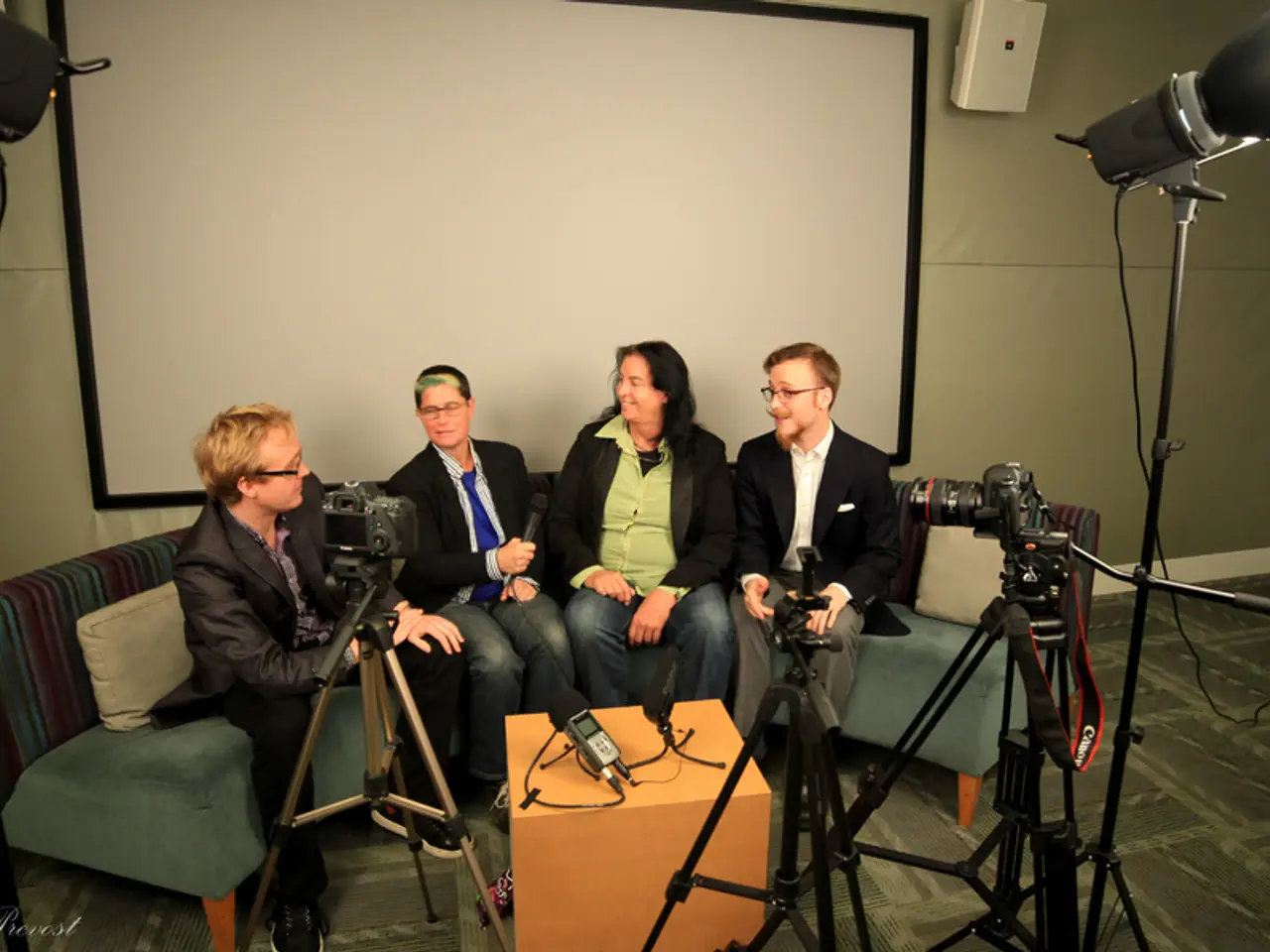Exploring Interview Techniques: A New Approach to Preparation Strategies
In the pursuit of landing a dream job, interview preparation plays a crucial role. However, the path to success is not just about securing the perfect job, but also about the experiences and relationships cultivated along the way. In this article, we'll explore the benefits and drawbacks of in-person interview coaching and online interview courses, and help you determine the best fit for your learning style and budget.
In-Person Interview Coaching
In-person interview coaching offers a traditional, face-to-face approach to interview preparation. Its benefits include:
- Real-time, direct personal interaction: Coaches can observe subtle body language, eye contact, and posture more accurately than online, providing valuable feedback.
- A focused environment: In-person coaching offers a distraction-free setting, perfect for honing your interview skills.
- Minimized technical issues: Unlike online coaching, in-person coaching eliminates the need for digital literacy, making it a more accessible option for some candidates.
However, in-person coaching also has its drawbacks:
- Logistical and geographic constraints: In-person coaching requires traveling to a location, which can be time-consuming and costly.
- Less flexible scheduling: In-person coaching is often less flexible than online options, making it harder to find a suitable time and date.
- Higher cost: In-person coaching is generally more expensive due to the personalized, face-to-face nature.
Online Interview Courses and Coaching
Online interview courses and coaching offer a more modern, flexible approach to interview preparation. Their benefits include:
- High flexibility: Online courses can be accessed anytime and anywhere, fitting better into various schedules and eliminating travel time or costs.
- Affordability: Online options range from free resources to modest subscription fees, making them a more budget-friendly choice for many.
- Technology integration: Online platforms often integrate technology for instant, detailed feedback, such as AI-based mock interviews and analytic tools to assess communication skills.
- Community: Online courses foster a sense of community through bustling chat rooms and vibrant online communities, allowing participants to cultivate camaraderie.
Online interview preparation also has its drawbacks:
- Technical difficulties: Potential technical issues or barriers for users with limited digital access or skills.
- Lack of nuanced feedback: Online interactions can be less natural, potentially missing out on nuanced feedback that in-person coaching might catch.
- Distractions: Less control over distractions in home or non-professional settings.
How to Determine the Best Fit for Your Learning Style and Budget
- Assess Your Learning Preferences: If you benefit from immediate, face-to-face personal feedback focusing on non-verbal cues, and prefer an immersive environment, in-person coaching is likely better. If you prefer self-paced learning combined with flexible access, or you are comfortable with technology and want detailed analytic feedback on both verbal and non-verbal skills, online courses or AI-powered coaching suit you more.
- Consider Your Budget: In-person coaching generally costs more and involves additional travel expenses. Online options range from free resources to modest subscription fees, providing extensive practice with lower overall cost.
- Factor in Accessibility and Convenience: In-person coaching requires geographical proximity and fixed scheduling. Online coaching is ideal if you need remote access, flexible timing, or want to practice repeatedly without additional cost.
- Evaluate Your Stage of Preparation: Early learners may benefit from structured online courses or AI tools to build foundational skills. Advanced candidates aiming for fine-tuning and personalized feedback may prefer live coaching, either in-person or online.
In summary, in-person coaching offers nuanced, real-time personal interaction but at a higher cost and lower flexibility, while online interview courses and AI-driven coaching provide affordable, flexible, and tech-enhanced practice but may lack some personal nuances. Matching these characteristics to your learning style (preference for personal contact vs. tech-enabled self-study) and budget constraints will help you select the best option. Embracing a blend of innovative methods equips individuals to tackle interview challenges effectively.
For more insights, we recommend exploring related posts to deepen your understanding of the topic. You may also find the external site "amazon writing exercise examples" useful for additional perspectives and details on the subject.
- The benefits of in-person interview coaching include real-time, direct personal interaction, a focused environment, and minimized technical issues, but it is subject to logistical and geographic constraints, less flexible scheduling, and higher cost.
- Online interview courses and coaching offer high flexibility, affordability, technology integration, and community, but they may lead to technical difficulties, lack of nuanced feedback, and distractions.
- To determine the best fit for your learning style and budget, assess your learning preferences, consider your budget, factor in accessibility and convenience, and evaluate your stage of preparation.
- Early learners might benefit more from structured online courses or AI tools, while advanced candidates may require live coaching, be it in-person or online, for fine-tuning and personalized feedback.
- A blend of innovative methods, including in-person coaching, online courses, and AI-powered coaching, equips individuals to tackle interview challenges effectively, ensuring they are well-prepared for related events, media interviews, fashion shows, and even online education aimed at career development and self-improvement.





